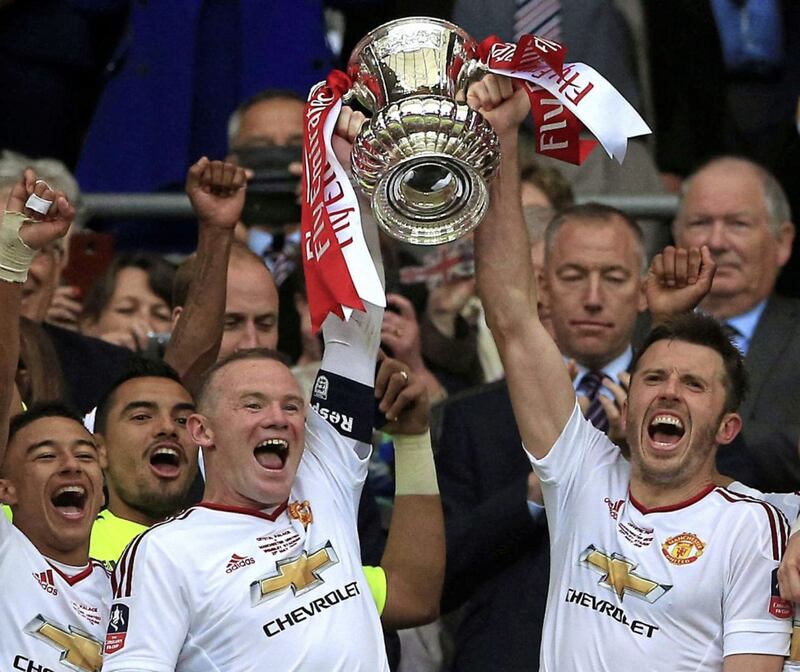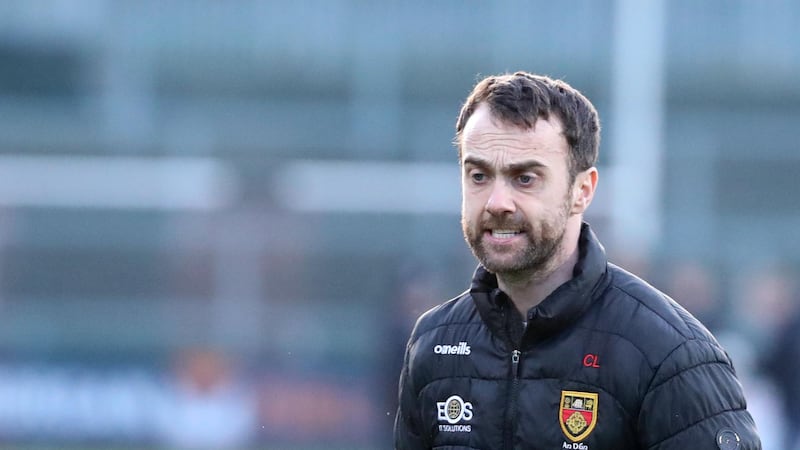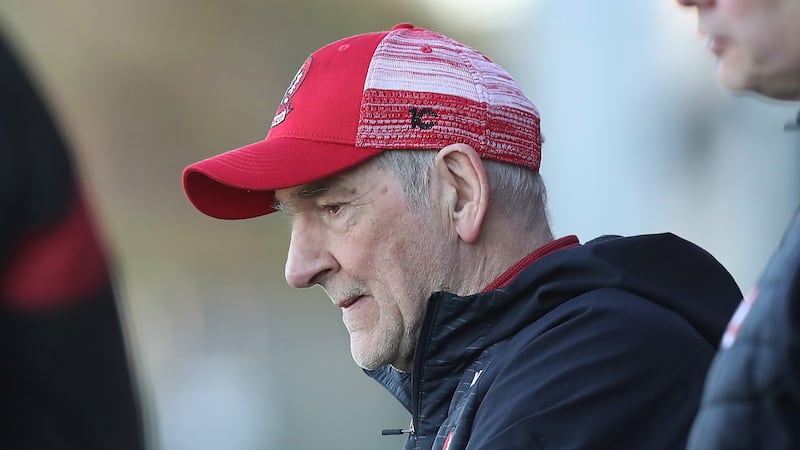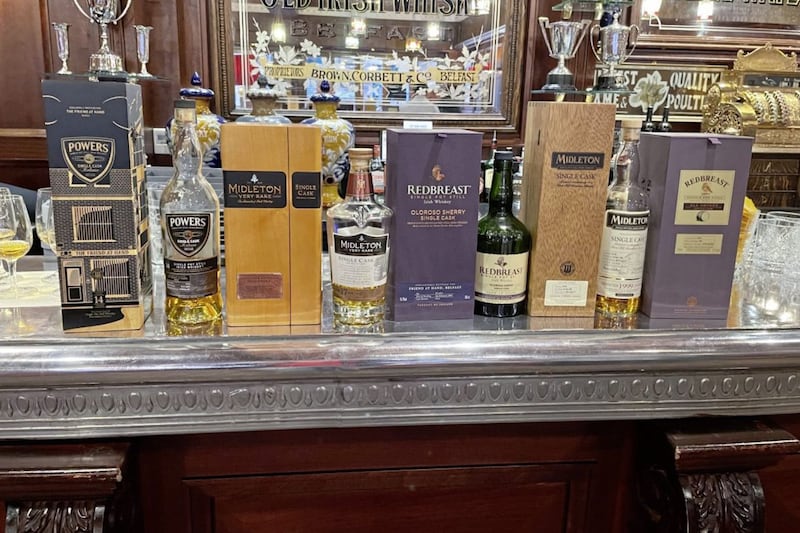NEW year, same old debate about the value of football’s secondary competition.
Yet in both Gaelic and Association football there really should be little doubt about the answer to both discussions: the National Football League definitely does matter whereas the FA Cup is increasingly meaningless.
This isn’t just the sour grapes of a Liverpool supporter; the FA Cup remains a great competition to win, but it too has slipped off its perch, now way down the pecking order behind ‘a Champions League place’.
That’s sad, but it’s also true, and no amount of complaining and hand-wringing will change that. Equally, although a poor National League doesn’t preclude a good Championship, there’s no denying that it makes ultimate success far less likely.
The League matters because you simply have to be in Division One to be in contention for the All-Ireland. No county has won the Sam Maguire Cup having played outside the League’s top flight since Armagh in 2002 – and even they had earned promotion from Division 2A.
What’s more, if you look at the teams that have been most regularly in Division One since the League was re-structured back into Divisions One, Two, Three, and Four for 2008 onwards, then you’ll see the most successful sides in the Championship over the past decade: Dublin, Kerry, Cork, Donegal, Tyrone, and – yes – Mayo.
Many may mock the westerners because of their continued failure to end their All-Ireland SFC drought – but most counties, apart from the others listed in the previous paragraph, would be delighted to reach three All-Ireland finals in this very decade, as Mayo have done.
Mayo have regularly come close to capturing ‘Sam’ because they’ve consistently been playing top level football in the League. Come early April there may be players, managers, and supporters consoling themselves with the old claim that ‘It’s only the League’.
Yet unless they’ve done enough to be playing in the 2018 Division One, they’re probably fooling themselves to think they can seriously compete for the Sam Maguire this year.
Meanwhile, in England there are those also clinging to a past belief, the one that claims the FA Cup is hugely important. It’s true that the FA Cup used to be valued as much as the League title, arguably more.
Certainly the FA Cup winners probably got more attention and exposure than the league champions, given that the final was broadcast live, first on radio then on TV.
However, those within English football always knew the greater worth of the League – producing the consistently best team, not one that perhaps had benefitted from a series of lucky pairings.
The emergence of the European Cup added to the value of a league title, and the creation of the Champions League – allowing the inclusion of several leading teams from top leagues – increased the importance of the league even further.
The standard reason given for the decline of the FA Cup is to point at the year 1999 and declare: ‘It’s all Manchester United’s fault’. Right year, wrong reason.
Sure, the Red Devils did not defend the cup they’d won as part of an incredible treble, but that was because they went to the FIFA Club World Championship in early 2000 at the FA’s behest.

Picture by PA Manchester United's Wayne Rooney and Michael Carrick lift the FA Cup after last year's final victory at Wembley
Picture by PA
A greater blow to the FA Cup was Uefa’s decision to do away with the Cup Winners’ Cup, merging it with the Uefa Cup after the 1998-99 tournament.
Cup winners no longer had their separate, special event. Instead they were lumped in along with a load of other teams in a competition that fell further and further into the growing shadow of the Champions League.
What’s more, in England winning the League Cup brings the same reward as the FA Cup, a place in the Europa League. Yet still certain high profile pundits want to have their FA Cup cake and eat it.
They want the big clubs to ‘respect’ the competition – but they also want giant-killings. The two are very unlikely to go together.
It’s improbable that Leeds United would have lost if they had sent their first choice side to Sutton United. A full strength Liverpool would probably have beaten Wolves. Probably.
Surely part of ‘the magic of the FA Cup’ is lower-ranked clubs making progress in the competition? Who would have been disappointed at Wolves’ win at Anfield other than Liverpool fans?
Who wouldn’t have laughed at Leeds losing to Sutton, other than supporters of the once-Mighty Whites? Of course there could have been Leeds-Arsenal and Liverpool-Chelsea ties, but wouldn’t FA Cup traditionalists prefer to see Sutton host Arsenal while Wolves welcome Chelsea? Or are those pundits really more concerned about viewing figures?
If you just want to see the biggest clubs making their financial muscle count by sweeping aside ‘lesser’ teams then there’s already such a competition – it’s called the Premier League (let’s not mention the miracle of Leicester City).
Arguably another factor in the FA Cup’s decline was during the previous decade to this one, when it became largely the property of Arsenal, Chelsea, Liverpool, and Manchester United.
In the last 10 years, however, there have been FA Cup triumphs for Portsmouth and Wigan Athletic, and final appearances by Cardiff City, Stoke City, Hull City, Aston Villa, and Crystal Palace. Surely that adds excitement?
Besides, only Liverpool of England’s current top six are absent from this FA Cup last 16. Jurgen Klopp was right to field a weakened team in a game sandwiched between a League Cup semi-final second leg and a huge Premier League game against Chelsea. His players let him down.
Although ‘in my day’ merchants invariably jeer at modern players, sports science has shown that insufficient recovery time leads to poorer performances and increases the likelihood of sustaining injuries.
Players of the past – the 70s and the 80s, even the 90s – simply did not run as far or as fast as present-day players do during matches. And a top four spot in the league was not worth far more than an FA Cup triumph in those days either.
The big difference between Gaelic football and soccer is that the knockout competition has always mattered more in the GAA. However, given how the All-Ireland Championship is increasingly the preserve of four or five counties, perhaps more counties will see that success in the League – even a divisional title – is their best bet for some silverware.









